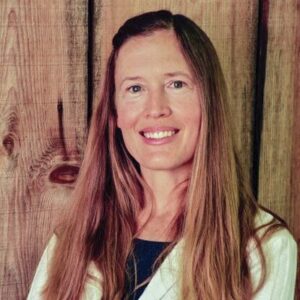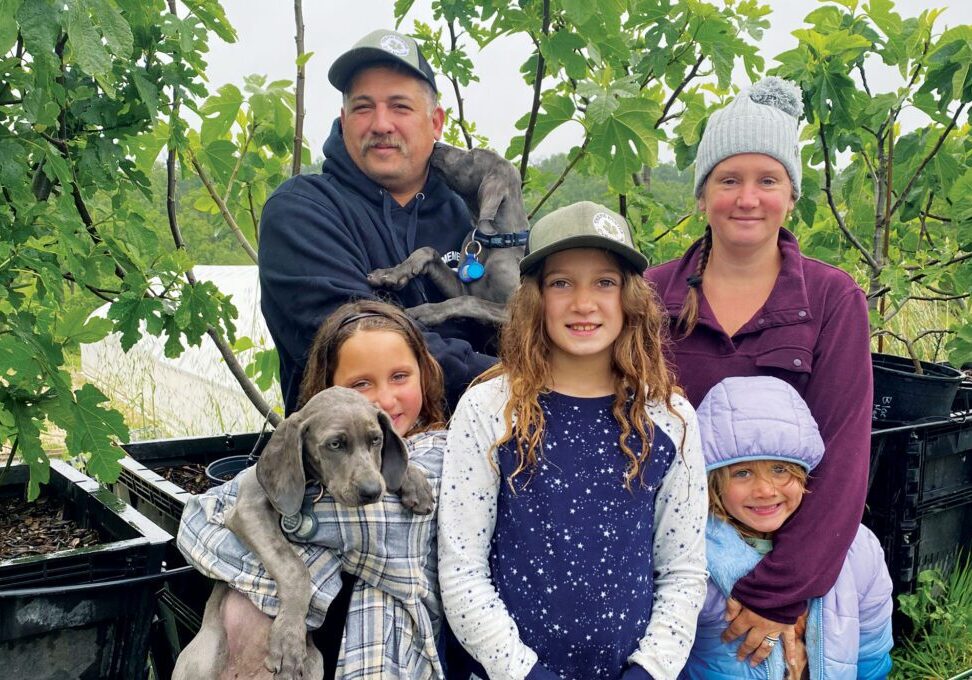To uplift is to inspire and, in early September, Tehama County Health Services Agency is partnering with Apsáalooke rapper and fancy dancer, Christian Parrish Takes the Gun, professionally known as Supaman, to uplift all ages with song, dance, teaching and, to put it simply, stunning beauty. Christian describes himself on his website as a Native American dancer and innovative hip-hop artist who has dedicated his life to empowering and spreading a message of hope, pride and resilience through his original art form. His tour of the country, as he says, “spreading the good medicine of resiliency, love, laughter and inclusion,” includes a Sept. 7 stop in Red Bluff at the Tehama District Fairgrounds for a special Native American cultural event.
A celebration of Native American culture
Avery Vilche, health educator for Tehama County Health Services Agency (TCHSA) Behavioral Health, first saw Supaman perform at the Butte College Big Time celebration last year. “I was floored by what an amazing performer he was with such a positive message. I knew he’d be someone we’d want to come to Red Bluff,” she says.
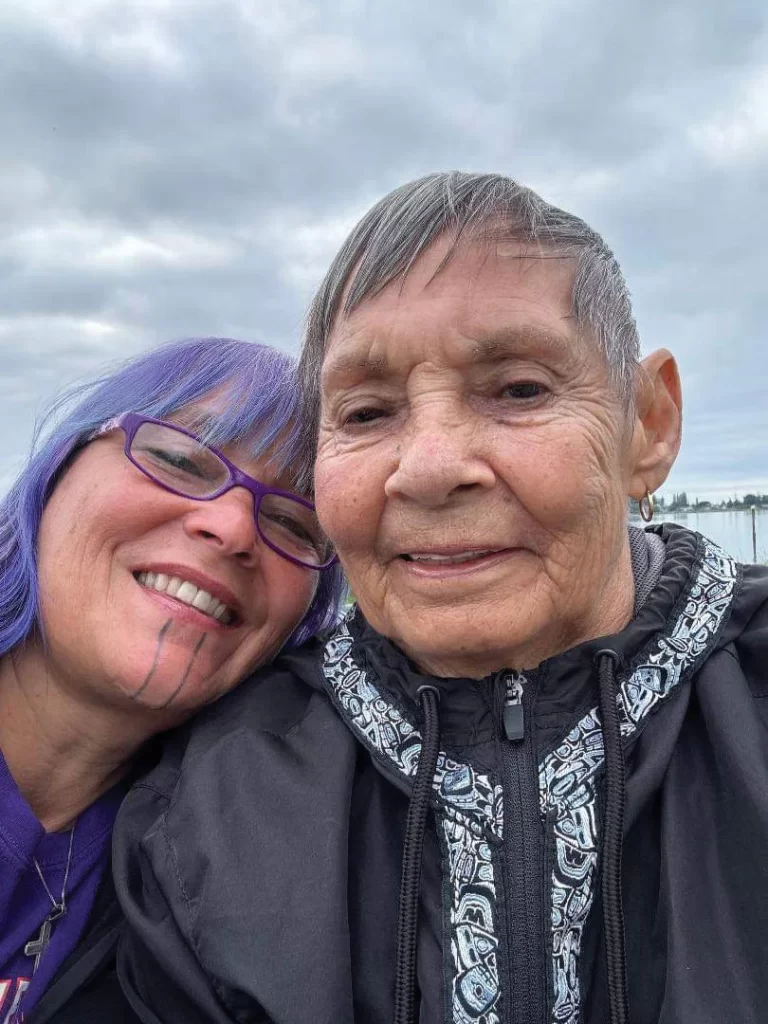
Avery Vilche credits her mom, Rose Albrightson, as her inspiration for competing in the the World Eskimo Indian Olympics. Avery said, “I wanted to make her proud that even though I wasn’t raised in Alaska I could still bring her home a medal.”
Avery was excited at the opportunity to bring Christian to Tehama County for a free, large-scale, one-day Native American Cultural Celebration on Sept. 7. “The celebration will bring together local and non-local Native Americans sharing their cultures through drumming, dancing, storytelling and a World Eskimo Indian Olympics demonstration, which includes some fun competitions such as four man carry, knuckle hop, head pull, Eskimo stick pull, arm pull and ear weight,” she says. Although they have yet to meet in person, Avery and Christian have similarities in their backgrounds. Both are Native Americans who experienced unique challenges and blessings which made them who they are today.
Challenging life experiences lead to a return to native culture
Christian was born in Seattle, Washington and grew up in Crow Agency, Montana. He and his brother were the children of struggling alcoholics. In an interview in The Moon Magazine, Christian says he and his brother spent their childhood in foster care before being returned to their mother, whom he calls his hero because “she did the work to get her life together.” While still in elementary school he began writing poetry and dancing at powwows, introduced by his maternal grandfather. Christian says, “I was really drawn to hip-hop when it first came out. It was the voice of oppressed people, which was similar to the experience of Natives.”
Avery is Inupiaq and explains her unique heritage. “My mom was born in Golovin, Alaska. She was one of 17 children. When she was 5, her dad and oldest brother went out on the dog sled to go seal hunting. They never came back. It’s assumed they went through the ice and died. Because of the dire nature of the situation, my grandma had to adopt out her three youngest children which included my mother. Mom was raised by a white couple in Sweet Home, Oregon. She met my dad there. She was reunited with her mom and siblings after high school and was able to get back in touch with our culture.”
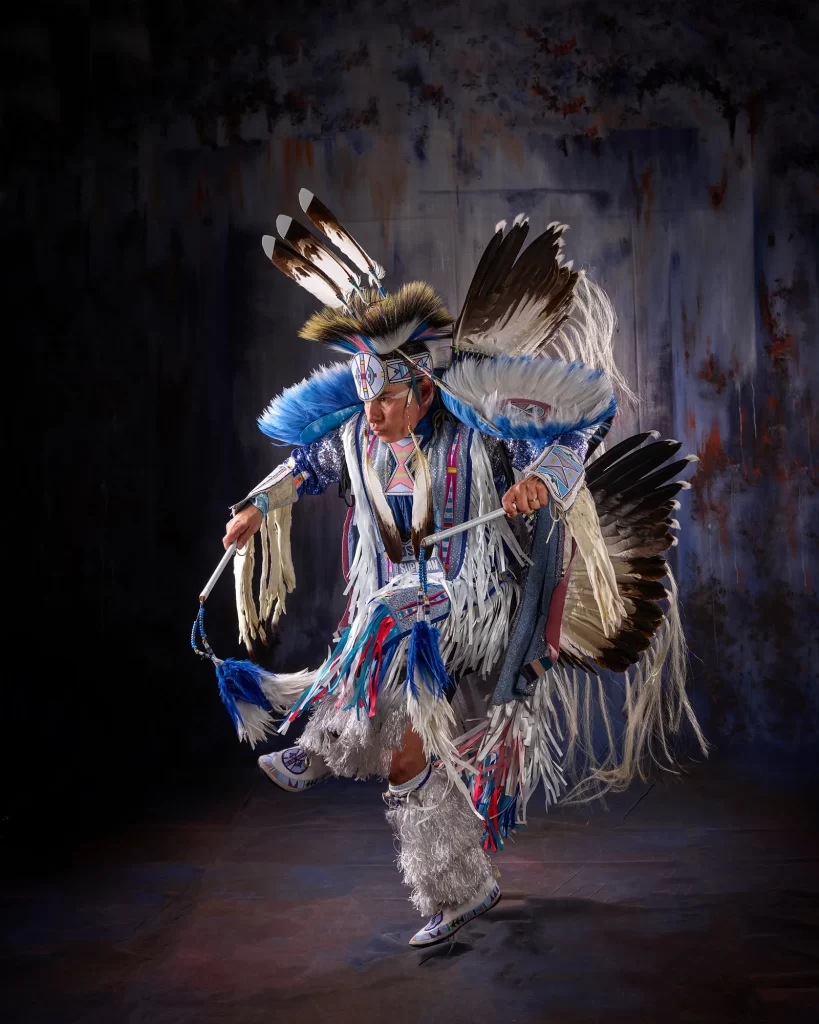
Supaman performs in one of his many gorgeous Native American ensembles.
New ways to preserve Native American culture
Avery and Christian both want to encourage youth to get back in touch with their culture by presenting Native American heritage in a relatable way. Christian says, “Utilizing and embracing technology can be a way of preserving culture. Just having access to different ways of learning and participating is important. Also, we need to ask ourselves how we teach culture to our youth so they value it enough to want to participate and preserve it themselves when they are bombarded by a tidal wave of information every day.”
“We promote intergenerational learning from Native elders’ teaching and having Native youth performing,” Avery says. “We love having families come and learn about our cultures. It encourages respect and appreciation for Native American cultures. Everyone enjoys seeing the different dances and hearing the drumming and singing and stories. And there is an opportunity for everyone to come and join in the dancing when the MC announces the Round Dance. It’s a beautiful show of unity and it’s a lot of fun.”
The Culture Bearers of Tehama County fosters intergenerational learning
In 2022, Avery, along with Native American and Alaska Native community members in local nonprofits, tribal health organizations, tribal social services, local education agencies, county behavioral health and public health, volunteers and the Tehama County Arts Council, formed The Culture Bearers of Tehama County. This group has been spearheading local events with the Native American Cultural Celebration as their third this year. Avery says they “seek to bring events to our community that share culture, encourage appreciation of our cultures and foster intergenerational learning.” She emphasizes, however, that they would not have been able to bring Supaman here if it weren’t for two generous grants they received from United Way of Northern California; a Vaccine Equity Grant and a North State Equity Fund award.
Bringing awareness to the MMIW movement
Part of being a culture bearer also includes dealing with hardships prevalent in tribal communities. Avery says that one main goal of the September event is to “highlight the MMIW, Missing and Murdered Indigenous Women Movement, to increase safety of our people and awareness of this grievous injustice.”
Even though the MMIW movement is gaining momentum across the country, more advocacy is still needed. “We need to be aware of the statistics and the danger that is being overlooked by society within our communities and ask ourselves what each of us can do to make a change,” Christian says,
Supaman shares a message of self-acceptance
“Tehama County needs more events like this,” Avery says. “More opportunities for people to enjoy different cultures, buy amazing Native made crafts, eat Indian tacos and experience the joy you feel when you hear the beautiful songs and see the wonderful dancers in their regalia being moved by the beat of the drum.”
Many have been moved by Christian’s Supaman performances and he hopes the experience inspires individuals attending the Native American Cultural Celebration. Christian shares that he also has an Apsáalooke name given to him by his grandfather. The name, Akemarshala, means “Good Fortune on Mother Earth.” When asked why his grandfather gave him the name, Christian answers simply, “He just wanted me to have a good life.” Similarly, Supaman wants to spread this simple message so that his listeners will have a good life, “You are perfect, you are enough. Stop believing the false perception of perfection. You were born perfect.”
Posted in: This is Tehama
Comment Policy: All viewpoints are welcome, but comments should remain relevant. Personal attacks, profanity, and aggressive behavior are not allowed. No spam, advertising, or promoting of products/services. Please, only use your real name and limit the amount of links submitted in your comment.
You Might Also Like...
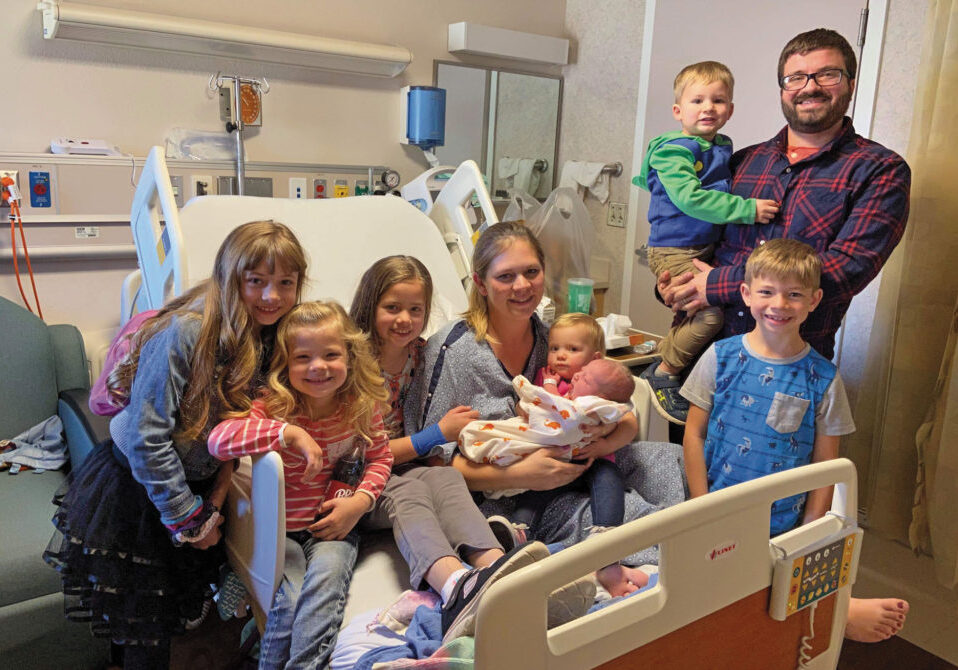
St. Elizabeth’s Midwives: This is Tehama
The Comfort and Care of Welcoming Babies with St. Elizabeth’s Midwives As St. Elizabeth Community Hospital in Red Bluff, CA, welcomes this year’s spring babies, the goal remains the same—healthy […]
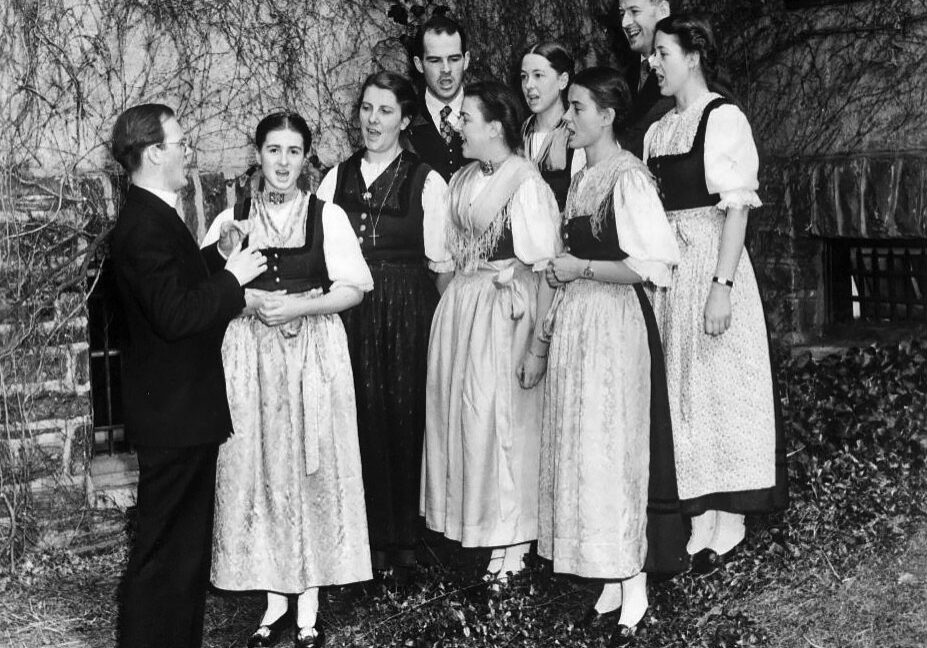
Tehama Concert Series – Uplifting, Positive & Feel-Good
Ask anyone who’s watched the 1965 musical film, “The Sound of Music,” and you’ll hear the words uplifting, positive, feel-good, and, of course, “do, re, mi, fa, sol, la, ti, […]
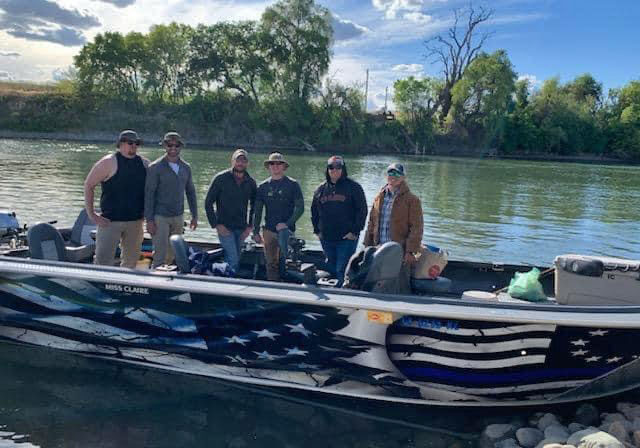
Blue Line Outdoors – Fellowship On The River
When Tehama County’s Jason Thatcher spoke with me recently about Blue Line Outdoors, he had already put in 14 hours working as a fishing guide and his day wasn’t even […]
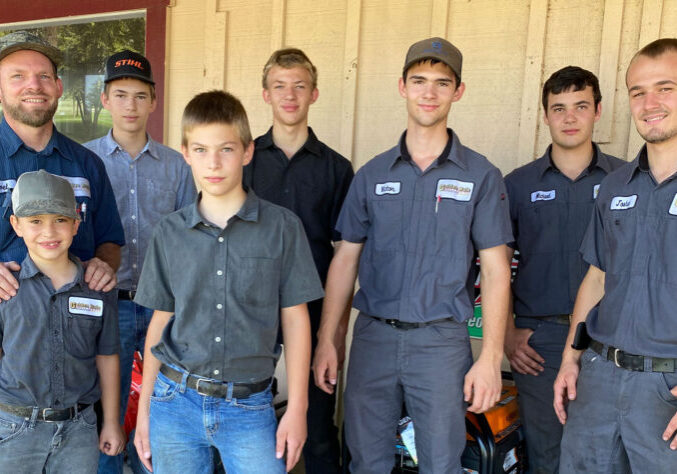
Golden Rule Small Engines: Serving Others Runs in the Family
Since opening shop in 2014, Joel Kreider has looked forward to each day as an opportunity to meet people, care about people and serve others as the owner and operator […]


